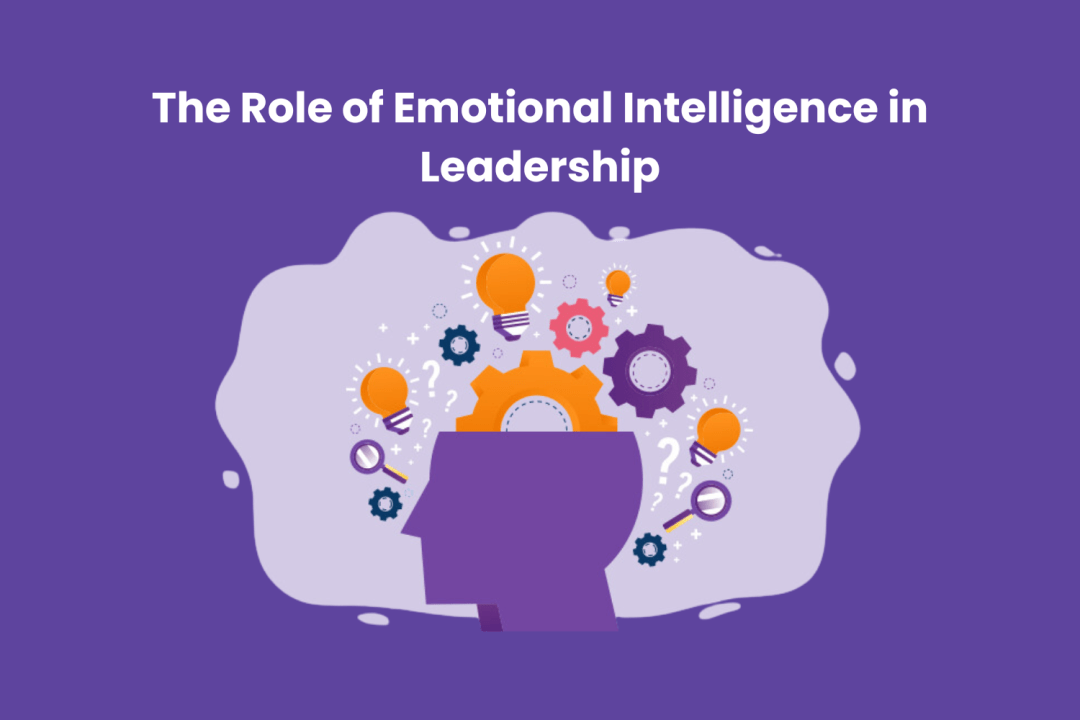The Role of Emotional Intelligence in Leadership

Understanding and controlling emotions, one’s own and those of others is essential for effective leadership. The more we study successful leadership, the more obvious it is that knowledge and technical proficiency alone are insufficient. Emotional Intelligence (EI), often considered the cornerstone of effective leadership, is the unsaid accelerant that may help people reach new heights in their careers. Leadership Courses may assist any professional who aspires to be a strong leader in learning more about EI and other critical traits.
In this blog, we aim to analyse the significant relevance of EI, examining how it affects Leadership Qualities and how it is deeply ingrained in developing leadership skills.
Understanding Emotional Intelligence
Before delving into the specifics, let’s clarify what EI is. The essence of EI is the capacity to detect, comprehend, and control our own emotions, as well as those of others. It emphasises human interaction’s interpersonal and intrapersonal aspects and goes beyond conventional IQ tests. It acts as a compass for people traversing the tricky terrain of interpersonal interactions in an organisational environment when it comes to leadership.
The Impact on Leadership Qualities
Self-awareness
Like every path, leadership starts with self-awareness. High EI leaders are sensitive to their feelings and clearly understand their advantages and disadvantages. The foundation for developing leadership qualities is this self-awareness. Leaders may develop an authentic leadership style and make well-informed judgments by being aware of their emotional triggers and reactions.
Empathy
A leader’s capacity for empathy is essential to creating a supportive and cooperative work atmosphere. The value of empathy in successful leadership is often emphasised in leadership courses. Leaders who can put themselves in their team members’ shoes foster an environment of mutual respect and understanding. This improves team camaraderie and morale, which leads to increased creativity and production.
Conflict Resolution
There will always be disagreements in any professional situation. Teams may be made or broken by the way leaders manage these disagreements. EI gives leaders the tools they need to negotiate choppy seas. Leaders may turn obstacles into chances for improvement by maintaining composure under duress and addressing disputes with a solution-focused attitude.
Fostering Innovation
Promoting innovation is a crucial leadership quality in the corporate world. EI is essential to fostering an atmosphere where ideas may thrive. High-EQ leaders may stimulate creativity by fostering an environment where people can voice their opinions and take measured chances. Organisations are propelled toward long-term success when this innovative energy is skilfully incorporated into leadership.
Adaptability in Leadership
As we examine the complex nature of leadership, flexibility emerges as a critical attribute. A leader’s approach must be flexible to adapt to the ever-changing corporate environment and take on new challenges. With its focus on understanding and controlling emotions, EI gives leaders the skills to handle uncertainty elegantly. With the right EI, adept leaders can cultivate an environment where people can adapt to change and grow with their teams.
Cultivating Emotional Intelligence with Leadership Courses
The essential role that EI plays in developing leaders is now included in leadership courses. These courses include modules that explore the subtleties of EI because they recognise the need for leaders who can negotiate the complexity of human emotions. Through engaging seminars and practical case studies, participants are presented with situations that challenge and improve their EI.
Nurturing Emotional Intelligence in the Workplace
Leadership Training
Businesses are increasingly realising how important EI is to their leadership teams. Because of this, leadership development programs are designed to foster EI and improve technical abilities. These programs establish a culture of ongoing self-improvement by giving leaders a place to examine and comprehend their vibrant environment.
Inclusive Leadership
Leaders with EI are skilled at recognising and using the variety on their teams. EI and inclusive leadership are closely related concepts in today’s business vocabulary. By appreciating many viewpoints and fostering an inclusive atmosphere, leaders can use their teams’ potential to spur creativity and attain group success.
Conclusion
One thing never changes in leadership: the lasting influence of EI. As we manage the obstacles of the working world, it is becoming more evident that leaders with vital EI can better guide their teams toward success. Leadership courses provide a systematic framework for leaders to develop and enhance their EI, acting as a link between theory and practice. In a world where adaptation, resilience, and empathy are prerequisites for successful leadership, EI stands out as the compass that leads leaders through unfamiliar territory and promotes development and long-term success.




